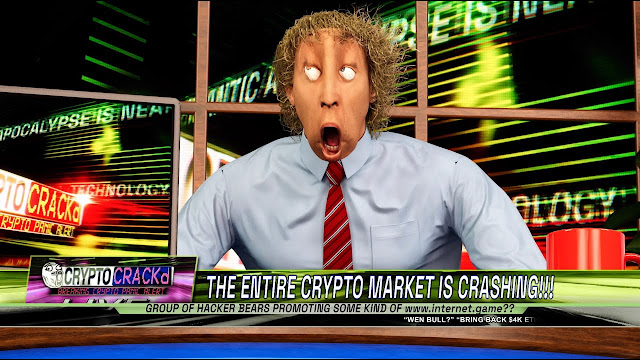The Alpha
- NFT tickets for the Web3 Game Internet Game were issued today in anticipation of the second phase of the Bear Market Battle. While the sale is limited to 24 hours, it will remain open for 24 hours.
- To win ownership in several high-end NFT projects, mint an NFT ticket. As of this writing, the floor price per ticket is 0.07ETH. Or a little more than $100.
- First prize to be announced? Bored Ape #4316 -- Valued at a cool 88.9ETH.
Why it matters:
Internet Game was co-founded in 2009 by Jordan Lejuwaan and venture partner Krish Jagird. It just reached its second milestone. The Bear Market Battle will feature the well-known NFT figure Gmoney and actress and comedian Leah Lamarr. Lejuwaan described the event as unique and "outside of the Web3 space". The project hopes to be a simple utility for its supporters: it is fun.
Internet Game's design is based on fun rather than the NFT-expensive prizes that are in store for those who clear the Bear Market Battle's two stages. "I think that most blockchain gaming companies have put the block before their horse. They are placing blockchain tech first rather than focusing on making fun games. In gaming, the main purpose of playing games is to have fun.
Funding would be required to purchase high-end NFTs that can be used as prizes. Internet Game is an excellent source of funding. Internet Game could rise to new heights following a $7-million seed round in defiance of the ongoing bearish market. According to its publicly-available case study, Internet Game's debut season also generated more revenue than $2 million.
Internet Game offers NFT ticket holders functional utility. These NFT tickets are only available for sale for 24 hours. But, once the games begin on September 12, there will be many opportunities to buy more. The Bear Market Battle will offer two options for players: they can either "cash in" or continue playing. Users' progress, and winnings, are saved to their tickets. New owners can then pick up where the original owner left off.
What's next:
Rus Yusupov is the founder of HQ Trivia and is, therefore, a significant investor in Internet Game. HQ Trivia is a fun, free-to-play trivia game. HQ Trivia provided the opportunity to win thousands of dollars in cash prizes by simply playing the game. Bad actors attempted to manipulate the system. This resulted in many users receiving their winnings a few months later.
Internet Game successfully avoided one of its predecessors' most serious flaws by relying on the blockchain. It's not a simple, free-to-play app such as HQ Trivia. However, it requires users to purchase an nft-ticket before use. This dramatically improves the security and fairness of the experience.
Lejuwaan is also optimistic that interactive experiences, such as Internet Games, will continue to grow in popularity throughout the entertainment industry. In 2000, reality television programs like American Idol allowed viewers to vote via text. Today shows on Netflix like You vs Wild and the Bandersnatch special are laid out in a choose-your-own-adventure format. Lejuwaan believes these examples are only scratching the surface. He says that what they're currently doing with Internet Game involves experimenting with interactive entertainment on a large scale and working in partnership with major consumer brands to make them mainstream.

Comments
Post a Comment